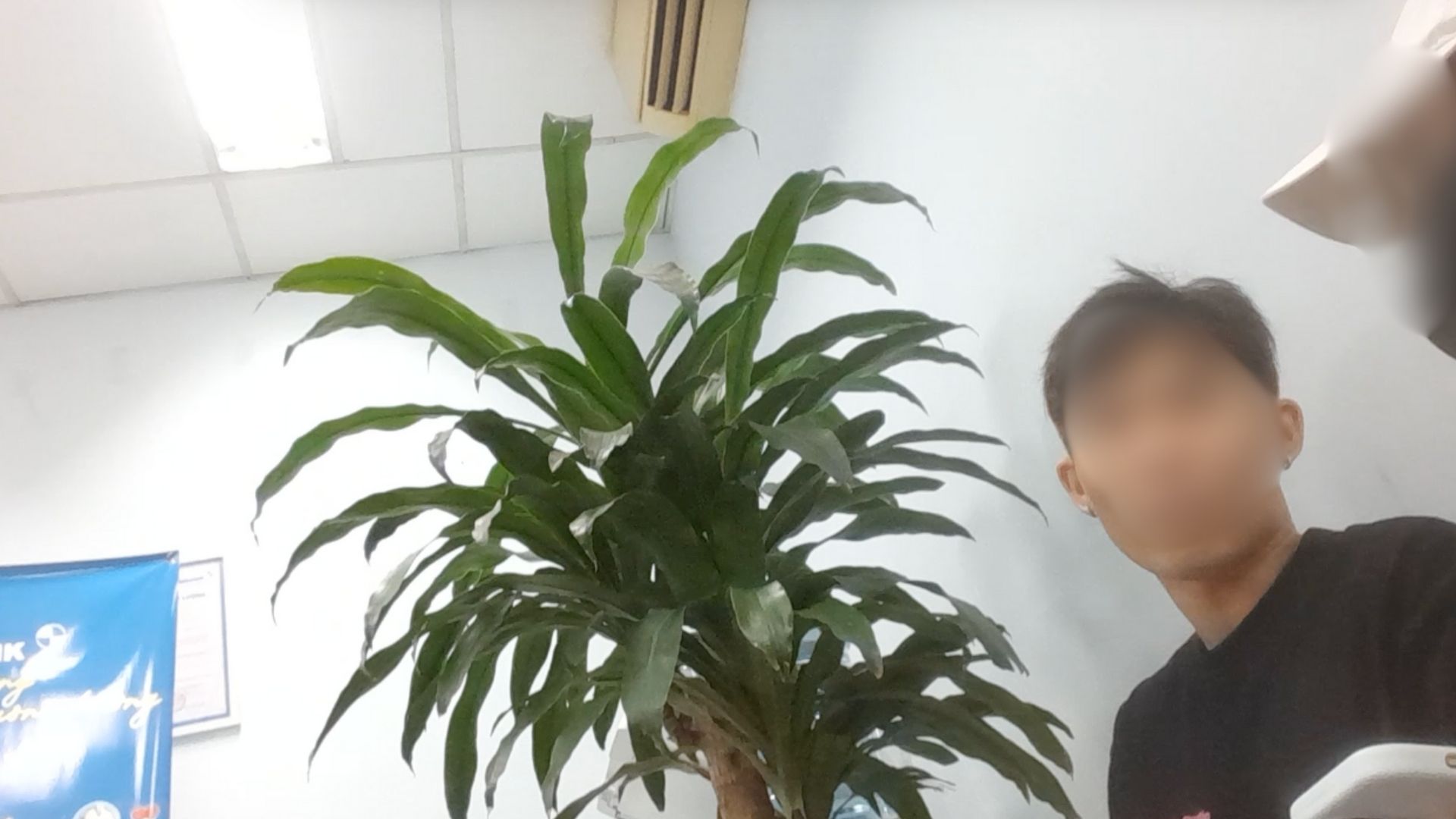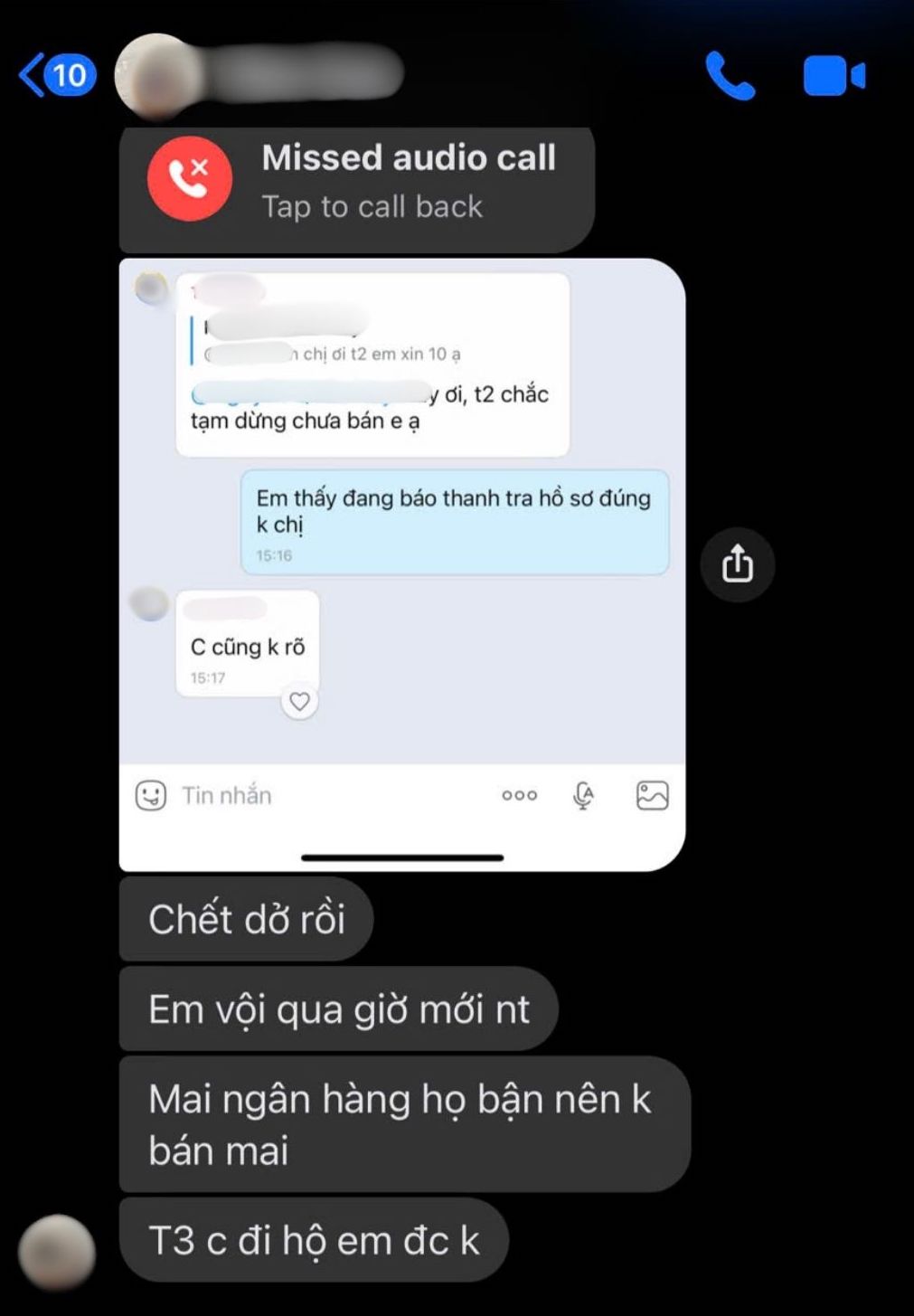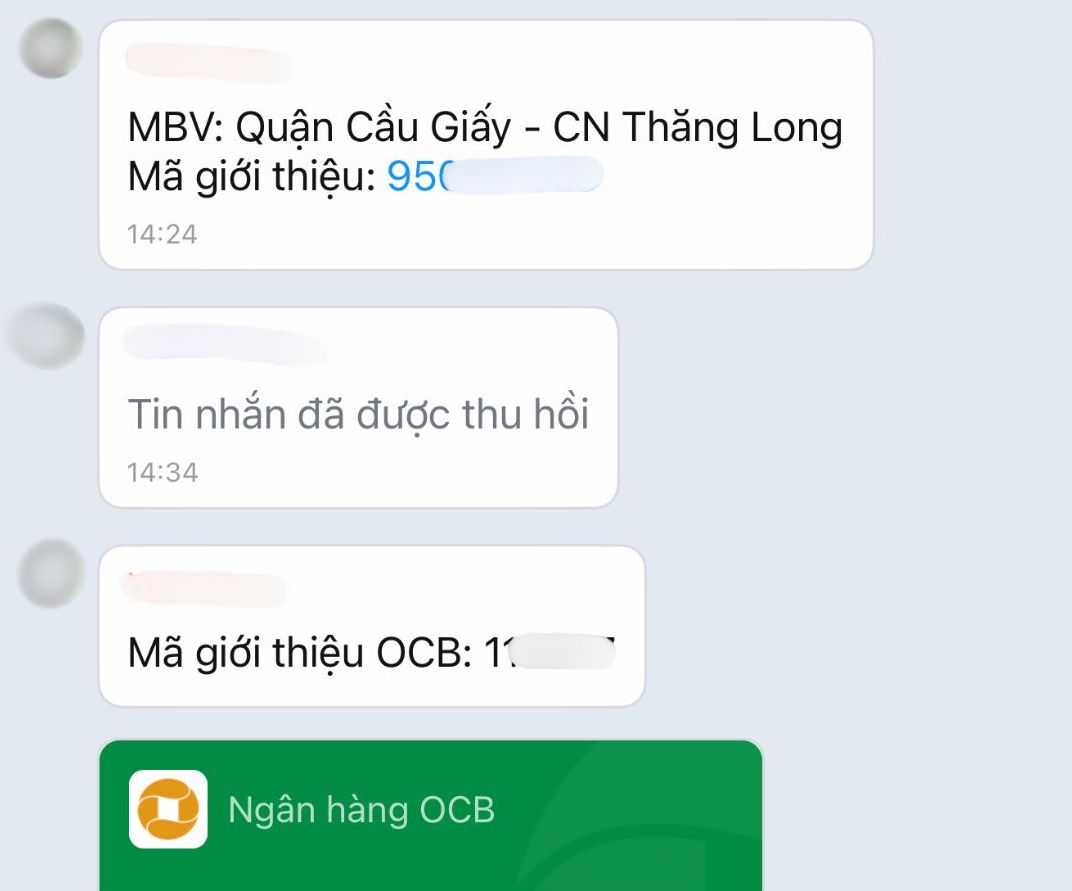Bank staff are no strangers
As Lao Dong Newspaper has reported the situation of hiring people with passports to exchange US dollars (USD) at many banks in Hanoi, the group of reporters continued to penetrate and recorded that this activity was organized properly, with signs of "discussation" between the tour guide and staff of some transaction offices.
According to the leaders of the group, Hung and Quang (character's names have been changed - PV) in one day, reporters were taken to many banks such as MSB, Eximbank, NCB, VPBank, OCB, MBV, PGBank... At each location, the procedures were quick: presenting passports, citizen identification cards, signing documents and immediately receiving foreign currency.
Notably, at the MSB Bank Old Quarter Transaction Office, when the reporter expressed concern that the USD exchange would affect personal documents, a bank employee reassured: Its okay. This does not affect entry and exit or tax. These guys don't come here every day."
At Eximbank Lo Duc, the level of familiarity was more clearly shown when the employee called the tour guide's name directly: "This morning, how many people are in your family?" and was replied: "9 people." These exchanges showed the familiarity between the bank employee and the tour guides.
got to know each other and early appointments
Before each trip, everything is arranged and carefully prepared. From the time to the bank, the number of people, to the procedures that need to be done. When asked about this, Quang frankly said: "It's a relationship. We have traveled a lot, the bank knows all the faces. The bank also needs KPI, we need to exchange money. Both sides are in good hands."
To complete the transaction, the tenant must open a new account at the bank where the USD is exchanged and enter the introduction code provided by Hung or Quang. This is a step that Quang emphasized as "mandatory" both to complete the procedures and help the bank get more new customers to register.
During the appointment, the reporter contacted the shrimp Con account (the person who posted the recruitment notice). This person quickly sent a conversation with a bank employee, clearly showing the USD transaction schedule that had been arranged in advance.



Notable figures
Not only is the familiarity with bank staff, the scale of transactions is also a noteworthy point. Quang said that each person was able to withdraw a maximum of 5,000 USD. The group has 9 members, meaning each bank withdraws a total of 45,000 USD. In just one day, through 8 banks, the amount of money this group withdrew was up to 360,000 USD.
Quang added: "The group of buyers on Ha Trung's side do not need money meters but check each bill, to see which bill is bad. If the bill is bad, the fee will be deducted. For example, a $15,000 is deducted by a $5,000. The color of the money is like congee on the inside, which is a bad money. But sometimes the bank only has that money, I have to accept it."
According to Quang, this job "has become a profession, maintained for 3-4 years now". Most of those who work here are people in the countryside or the elderly. Once, the whole group of elderly people exchanging USD did not know how to open an account, so Quang had to open a household, spending more time.
Through sharing, Quang said that he was just a person who "assisted" a boss behind him.
According to the reporter's records, in addition to the group that the reporter was introducing, during the same session at some banks, many other groups appeared to exchange USD.
At OCB, the reporter observed that many groups of people took turns entering and exiting to make the transaction. Quang also confirmed that the group he led was not the only group.
The fact that many groups appear at the same time at banks and conduct large transactions raises the question: Who is controlling these activities and which loopholes are being exploited?












